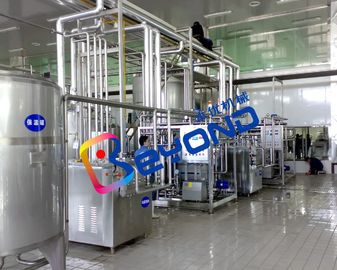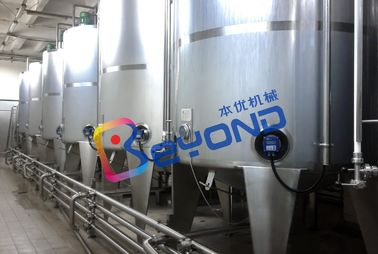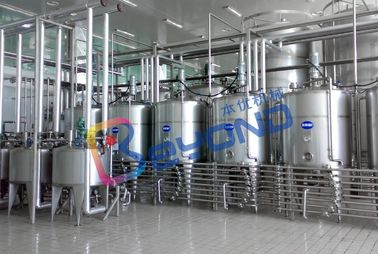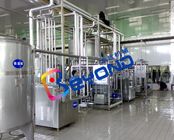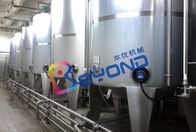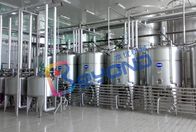-
Dairy Processing Plant
-
UHT Milk Processing Line
-
Industrial Yogurt Making Machine
-
Tomato Processing Line
-
CIP Cleaning System
-
Fruit Juice Processing Line
-
Mango Processing Line
-
Pineapple Processing Line
-
Orange Processing Line
-
Milk Pasteurization Equipment
-
Cheese Making Equipment
-
Butter Making Equipment
-
Stainless Steel Tanks
-
Fruit Processing Equipment
-
Apple Processing Line
-
Beverage Production Line
-
Multiple Effect Evaporator
-
Soft Drink Production Line
-
Meat Processing Machine
-
 Erik Steen Hansen of DenmarkI am the person, who has done the trials/production using the Pineapple crusher. So far the crusher has worked very well!
Erik Steen Hansen of DenmarkI am the person, who has done the trials/production using the Pineapple crusher. So far the crusher has worked very well! -
 Director Gerelkhuu of MongoliaYou are always welcome. Glad to work with your company and employees.
Director Gerelkhuu of MongoliaYou are always welcome. Glad to work with your company and employees.
High Efficiency Dairy Processing Plant With Plastic Pouch Packaging Machine
| Material | SUS304/SUS316L Stainless Steel | Efficiency | High Efficiency |
|---|---|---|---|
| Solution | Turn Key Project | Warranty | 12 Months After Commissioning |
| Control | Automatic Control | Package Form | Pre-pak Pouch, Brick-shape Carton, Gable Top Bag, Plastic Bottle, Plastic Cup, Glass Bottle Etc |
| After Sales Service | Engineers Are Available For Serving Machinery Overseas | ||
| Highlight | dairy processing equipment,milk processing plant |
||
Engrgy saving type Pasteurizing Milk Production Line with plastic pouch packaging
Brief information of pasterizing milk production line
| Brand Name: | Shanghai Beyond |
| Model Number: | BY-PM |
| Capacity | 5-300TPD |
| Raw material |
Fresh cow milk, buffalo milk, goat milk, camel milk or milk powder, or both mixed |
| End product |
Fresh milk, pasteurized milk, standardized pasteurized milk |
| Shelf life | 5-7days (keep at 4 ℃ ) |
| Final product fat (%) |
Semi-skimmed or double toned milk (1.5%); Full cream(3% or 6%); Toned milk(3%) |
| SNF | 8.5%(min) |
| Main material for machines | SUS304 or SUS316 |
| Package for end product | Aseptic large bag in drum/ glass bottle/PET bottle, Roof type carton box/ brick shape carton |
| Certification: | ISO9001/CE/SGS |
| Place of Origin: | China |
| Manufacturer history | More than 10years |
Features and advantages:
1. Full-auto CIP cleaning, to ensure whole production line equipments meet food sanitary safety requirements.
2. Whole line with features as high level automatic, low labour intensity, easy operation, safe function and low operation cost.
3. Whole line adopt sanitary design, can be cleaned thoroughly, with high level sanitation
Description of this pasteurized milk production line :
Pasteurized milk is milk which has been heat-treated to kill pathogens which cause disease. Not all pathogens are removed during the pasteurization process, so pasteurized milk is not 100% sterile, but many people consider it to be safer to drink than raw milk which has not been pasteurized at all. The bulk of the milk sold in commercial grocery stores is pasteurized, and much of it is also homogenized to prevent the cream from separating.
First the milk is preheated and standardised by in line milk fat standardisation system. The purpose of standardisation is to give the milk a defined, guaranteed fat content. Commonvalues are 1.5% for low fat milk and 3% for regular grade milk, fat contents aslow as 0.1 and 0.5 % is skimmilk.
Then the standardised milk is homogenised. The purpose of homogenisation is to disintegrate or finely distribute the fat globules in the milk in order to reduce creaming.Homogenisation may be total or partial. Partial homogenisation is a more economical solution, because a smaller homogeniser can be used.
The milk, now is pumped to the heating section of the milk heat exchanger where it ispasteurised. The necessary holding time is provided by a separate holding tube.The pasteurisation temperature is recorded continuously. Pump is a booster pump which increases the pressure of the product to a level at which the pasteurised product cannot be contaminated by untreated milk or by the cooling medium if aleak occur in the plate heat exchanger. If the pasteurisation temperature should drop, this is sensed by a temperature transmitter. A signal activatesflow diversion valve and the milk flows back to the balance tank. After pasteurisation the milk continues to a cooling section in the heat exchanger,where it is regeneratively cooled by the incoming untreated cold milk, and then to the cooling section where it is cooled with ice water.The cold milk is then pumped to the filling machines.
Temperature and pasteurisation holding time are very important factors which must be specified precisely in relation to the quality of the milk and its shelflife requirements. The pasteurisation temperature is usually 72 – 75C for 15 –20 sec. A common requirement is that the heat treatment must guarantee the destruction of unwanted microorganisms and of all pathogenic bacteria without the product being damaged.
![]()
![]()
![]()




